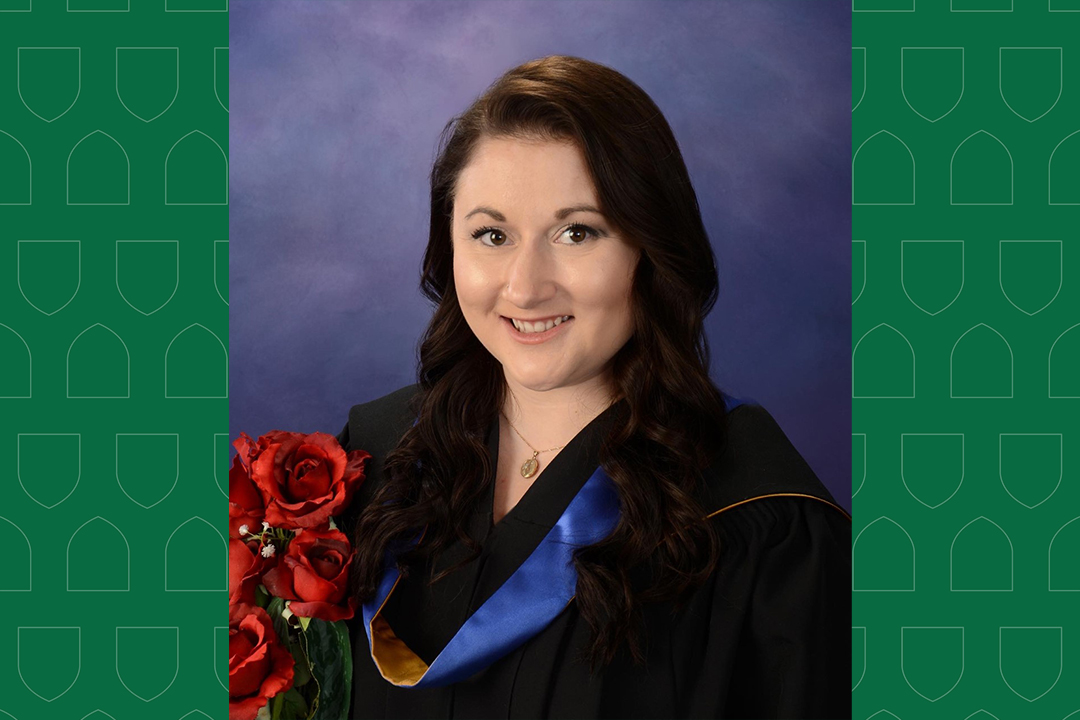
Rural roots run deep for new veterinarian
Dr. Hayley Down worked as a registered veterinary technologist (RVT) in southeast Saskatchewan, and after six years of schooling, she’s now returning to rural mixed animal practice as a veterinarian.
By Nykole KingOriginally from a cattle and grain farm in Maryfield, Sask., Down finished the Doctor of Veterinary Medicine (DVM) program at the Western College of Veterinary Medicine (WCVM) in April 2021. She’s joining the team at Valleyflats Veterinary Services in Moosomin, Sask., where she has worked for the past three summers.
“I went into vet school with the intent of always returning to the southeast. I just know that there is such a need for veterinarians in rural Saskatchewan and I wanted to be able to help contribute to that,” said Down. “So, I tried my very best to be a well-rounded veterinary student with interest in both small, large [animal] and equine medicine.”
Down always wanted to pursue a career in veterinary medicine. After graduating high school, she enrolled in the two-year animal health technology diploma program at Lakeland College in Vermilion, Alta. She then worked as an RVT for two and a half years at Head for the Hills Veterinary Health Services in Carlyle, Sask.
Down loved the work, but she decided that she wanted to earn her veterinary degree.
“I wanted a little more responsibility and a little more control over my cases that I was seeing. I just wanted to increase my knowledge as well,” said Down. “I just felt the best way for me to do that was to return to school and to become a veterinarian.”
Down enrolled at the University of Saskatchewan and took two years of courses at the College of Agriculture and Bioresources before being accepted at the WCVM. During her four-year veterinary medicine program, Down finished at the top of the class academically in her first and second year.
Down earned exceptional marks in a class of academically strong students, but at times, she struggled to maintain a healthy work-life balance with her studies. Down said what helped her the most was having the support of friends in her program and joining the WCVM recreational hockey team—even though she had never played hockey before.
“It was challenging, but it was amazing to learn a new skill. Also, it was a huge stress relief for me to have something to go and do and you just completely turn off your brain from studying or from doing assignments. Then just having that community to be a part of, too—to be a part of a team,” said Down.
Down worked at the Valleyflats practice as part of the SVMA summer mentorship program after her first year and again after her third year with the SVMA preceptorship program. Owner Dr. Rebecca Gervin, who graduated from the WCVM in 1998, was Down’s mentor throughout school. Developing that professional relationship provided Down with an opportunity to take what she learned in school and to ask questions about how a rural practitioner would approach certain situations without the same resources.
“My boss has been an exceptional mentor to me. She's always been really willing to let me try things and teach me things and let me do things that I was comfortable with—and every year that grew and grew,” said Down. “I just really feel like I got to hone my clinical skills.”
Gervin has owned the Moosomin-area clinic for 11 years and has been a mixed animal practitioner for 23 years. She said there’s a shortage of rural veterinarians who are able to keep up with the demands of a rural practice and are willing to live in rural Saskatchewan. Gervin feels lucky to have Down join her clinic as a full-time general practitioner because she’s passionate and ready to take on whatever challenges might happen during the daily operations of rural practice.
“You never know what's coming through the door. It might [weigh] three pounds or it might be 2,000 pounds, and you never know what's going to be wrong with it and [Down] just takes it in stride. She’s eager and it's refreshing,” said Gervin.
“She doesn't get fed up with the fact that it's always busy. I mean, you really have to love veterinary medicine to want to do rural mixed practice. It's not about being a doctor. It's not about prestige, it's about animal welfare and about taking care of the animals and their people. The people are just as important to us as the animals are.”
Down always wanted to move closer to home, so she’s looking forward to being only a 30 minutes’ drive away. Returning now as a veterinarian, Down is looking forward to helping her home community—the animals and the people—and making long-term connections with clients.
“You could vaccinate a puppy, spay it and do all its health for the next couple of years. You follow it through its life, and I find you make really deep connections with the owners when you're in a place for a significant amount of time and I really like that part of it,” said Down.
“I just feel like I have been looking forward to starting my career for so long and being able to use what I've learned. I'm just honestly so excited to start working and use the skills that I've developed over the years at the college.”
